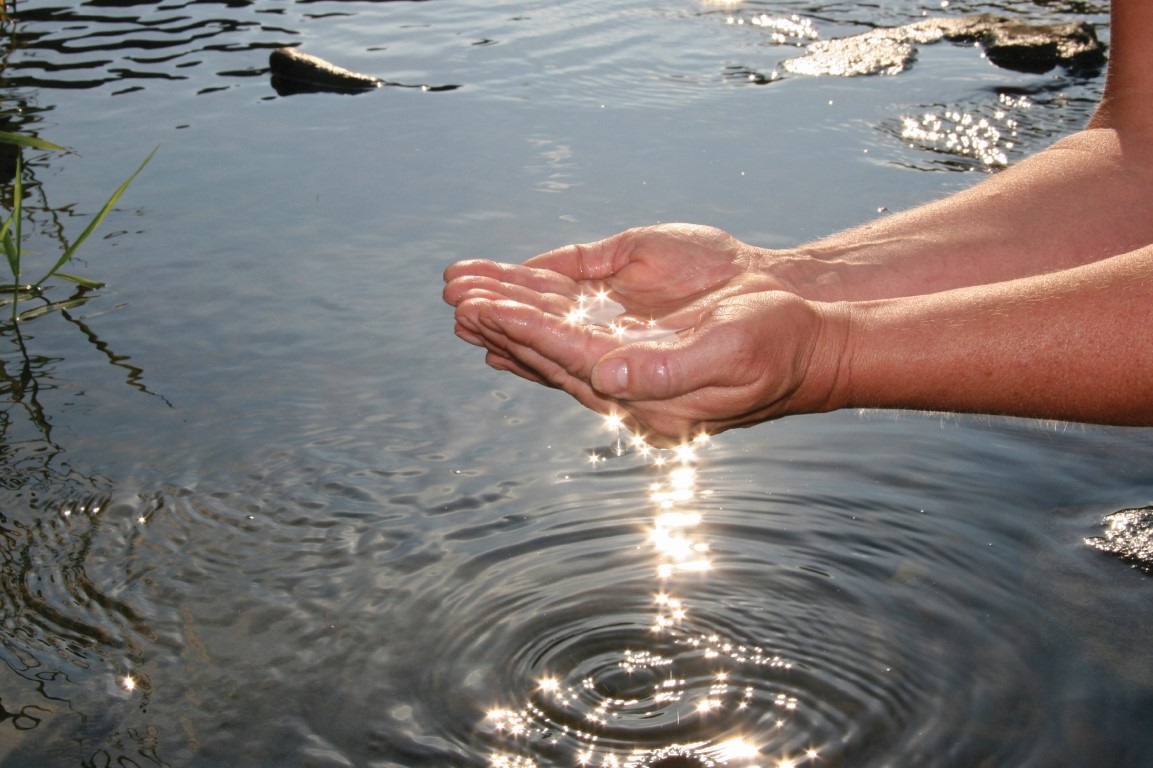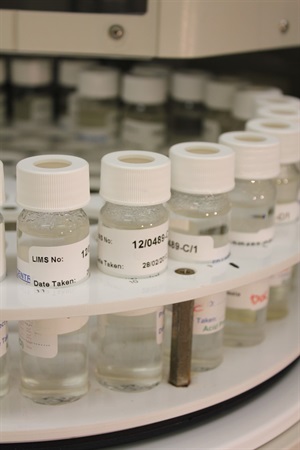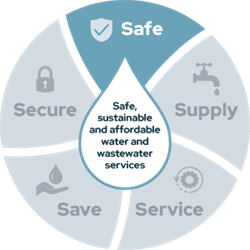Lab services
The Tweed Laboratory Centre (the Lab) offers a range of chemical and biological testing for soil and water. Find out how to submit a sample.
Algae Microbiological Chemical Metals Organics Nutrient Acid sulfate soil
Algae testing
The Lab is a market-leader in algae testing, identification and research.

Algae are free-floating microscopic plants that grow with light and nutrients.
Various types of algae are found in Australian waters, including blue-green algae, diatoms, green algae and flagellates. They are natural to waterways and are part of the aquatic food chain.
Algae can produce toxins which have been known to cause stock losses. Algal blooms can also cause bad tastes and odours in the water.
Highly trained staff examine water samples through a microscope to identify any potential algal problems.
The Lab's testing and reporting supports private landholders, council and other government agencies to roll out early intervention measures to combat detrimental algal blooms.
As a value-add test, we can also genetically test some potentially toxic blue-green algae using Real-time PCR to determine whether a particular population has the genes for toxin production or not.
See water pollution and dam levels.
Microbiological testing
 Microbiological testing is important in detecting water-borne diseases which pose a risk to public health.
Microbiological testing is important in detecting water-borne diseases which pose a risk to public health.
This type of testing will identify pathogenic bacteria, viruses and other micro-organisms which occur when the water is polluted with faecal matter.
This testing is often performed on drinking water, recreational water (including swimming pools and spas), bores, rivers, lakes and dams. See drinking water quality.
The Lab provides the following microbiological testing:
- escherichia coli - drinking water (town water, tanks, bores), streams, rivers, lakes, dams
- thermotolerant (faecal) coliforms - swimming pools, outfalls, streams, rivers, lakes, process control
- total coliforms -drinking water (town water, tanks, bores),
- enterococci - estuarine waters, outfalls
- pseudomonas aeruginosa - swimming pools, spas, bottled water
- total plate count (heterotrophic) - town water, swimming pools, process control.
Chemical testing
The Lab offers a range of chemical testing services. Testing is available for nutrients, metals, physical testing (such as pH, conductivity), oxygen demand and more.
Our staff use state-of-the-art technology and techniques to achieve precision and reproducibility for our chemical testing services:
- inductively coupled plasma optical emission spectrometry (ICP-OES)
- inductively coupled plasma mass spectrometry (ICP-MS)
- gas chromatography mass spectrometry (GC-MS)
- flow injection analysis (FIA)
- specific ion electrode chemistry (ISE)
- titrimetric, gravimetric and general wet chemistry.
Metals testing
We can provide testing for virtually all known metals of the periodic table. This ability to detect at very low levels in water ensures even trace amounts of possible contaminant metals are detected in both drinking water and environmental water samples.
We also offer metal testing for soils in relation to possible contamination.
Organics testing

Using sophisticated gas chromatography techniques, we are able to detect a range of organic compounds such pesticides (for example, DDT, dieldrin, fenitrothion), petroleum (for example, BTEX, TPH, henols) and disinfection bi-products (THMs) in waters and soil.
We provide this service to environmental consultants, councils and land holders.
Did you know? DDT was widely used in Australia for pest control until it was banned in 1987. Because of its long half-life it can persist in soils for decades.
Nutrient testing
The Lab offers the full range of nutrient testing in waters using an automated flow injection analysis:
- nitrate
- nitrite
- ammonia
- ortho (free) phosphate TKN
- total nitrogen
- total phosphorus.
Most nutrient work is for monitoring waterways and wastewater process samples. Nitrate as nitrogen at levels of 10 mg/L can cause methemoglobinemia in infants and therefore is recommended to be tested for drinking water.
Acid sulfate soil testing
Australia's eastern seaboard has large areas where the soil is classified as acid sulfate. If disturbed and open to the atmosphere, the iron sulphides in the soil oxidise to form sulphuric acid, which will significantly impact on aquatic life including fish as well as causing corrosion of infrastructure.
The Lab can identify these soils through both initial screening tests and the more comprehensive chromium reducible sulphur suite of tests from which liming rates for remediation can be determined if required.
